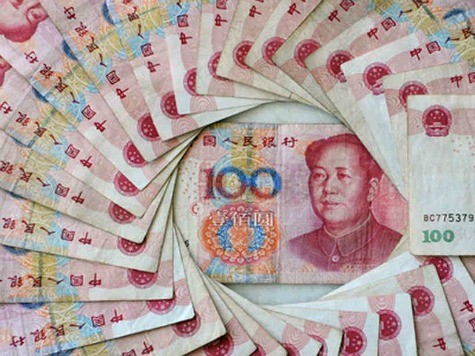
A new report from a Chinese government agency finds that the country has wasted $6.8 trillion invested in “ghost cities,” abandoned apartment buildings and highways to nowhere. The staggering amount accounts for half of all Chinese investment in the economy since 2009. Loose fiscal policy and mandated government investment in “shovel-ready projects” aren’t sure-fire winners in today’s competitive global economy.
The Chinese economy has experienced explosive economic growth in recent decades. Investment of this windfall, however, has mostly fallen to national and local government entities. As the national communist government removed credit restrictions on lending, local governments went on an infrastructure spending binge. Today, “ghost cities,” metropolises built from scratch for citizens who never came, dot the Chinese landscape.
During our loose credit-fueled housing bubble, America experienced empty cup-de-sacs. China has entire cities that are vacant, with ribbons of highways and bridges leading nowhere.
The scale of this Chinese malinvestment is difficult to conceptualize. The figure $6.8 trillion is equivalent to the annual economic output of India, the world’s third-largest economy. It is about 150% of the economic output of Japan.
Suburban geopolitical strategists and armchair political philosophers have long fretted that China would soon eclipse the US on the world economic stage. While these warnings were nearly identical to talk in the 1980s of Japan’s inevitable ascension to the top of the economic ladder, China’s sheer size made this talk credible. One billion people exploiting a massive arbitrage in wages can fuel an unbelievable amount of economic growth, after all. Any rise in income among these citizens will spark consumer spending that, by its size, will dwarf many other countries.
However, China is still a communist country. Its macroeconomic policy and investment decisions are still orchestrated by government officials. A separate report, from consultant Emerging Advisors Group, estimates that around $1 trillion in investment was simply “skimmed off the top” by local Chinese government officials.
Corruption and bad investments occur frequently in the US, of course, but it is orders of magnitude less, simply because our government doesn’t yet have access to the scale of funds available in China. Imagine that the entire $16 trillion economic output of the US routed in some way through the halls of Washington or state capitals? The mind reels at the thought of what the US political system would do with such lucre.
China will pay a very steep price for this investment waste. It is unlikely the country will ever again reap the outsize economic benefits it has enjoyed over the past two decades. It may very well have squandered its potential.
This tale is a reminder, though, why government’s role in the economy and investment decisions needs to be limited. Government, by its very nature, can’t make good economic decisions. That power is better diffused to millions of individuals pursuing choices to better their own lives.
Napoleon once dismissed his strategic opponent England as a “nation of shopkeepers.” Those shopkeepers soon dispatched Bonaparte from the world stage and ushered in a global economic revolution.

COMMENTS
Please let us know if you're having issues with commenting.